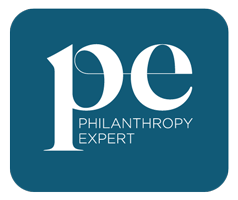
Article by Mel Ulle
Our firm currently works with over 60 clients, and more than half are at risk of losing critical funding with federal cuts looming. Those who are over-leveraged with government grants are most at risk. Sit in on any nonprofit staff meeting, or board meeting and this will be one of the top topics of conversation.
Federal budget cuts have long been a source of concern for the nonprofit community and the broader social sector. These cuts, usually driven by shifting political priorities, economic downturns, or deficit reduction efforts, have severe consequences for organizations that rely on government funding to serve vulnerable populations. As federal dollars diminish, nonprofits will inevitably face operational challenges, reduced services, and increased demand from communities struggling to fill the gaps left by lost funding.
We have, as a society, relied heavily on the “third sector” to cover the holes in government services and in many ways the government has outsourced much of its responsibilities to nonprofits. And that’s fine. It has worked for decades, but only so long as there is money coming from the public sector to subsidize third sector. Services will quickly erode when those dollars dry up.
Nonprofits in sectors like education, workforce development, and affordable housing are particularly vulnerable to funding fluctuations. If federal grants for early childhood education programs like Head Start are reduced, thousands of lower income children could lose access to quality preschool education. Consider the domino effect that will have on working families. Similarly, cuts to workforce training initiatives will leave job seekers without the skills needed to secure stable and long-term employment.
Logically, as government funding shrinks, many nonprofits turn to private donors and foundations to fill the gap. I hate to be the bearer of bad news, but philanthropy alone cannot fully replace lost federal dollars, especially when funding cuts are so profoundly widespread and affecting multiple sectors simultaneously. Foundations have very specific funding priorities, and individual donors will not be able to donate at sufficient funding levels to sustain programs previously supported by the government.
It’s also important to note that economic downturns that often accompany federal budget cuts can lead to decreased charitable giving. If individual donors and businesses experience financial duress, donations will decline just as the need for services rises. This creates a very uncomfortable paradox in which nonprofits are expected to do more with less.
Budget cuts to federal safety net programs like food assistance (SNAP), housing vouchers, and unemployment benefits typically push more people toward nonprofit organizations for help. Food banks, homeless shelters, and crisis intervention programs almost always experience a surge in demand when government assistance programs are cut. Without sufficient resources to meet this growing need, organizations will have to turn people away or reduce the quality and quantity of services they provide.
But the nonprofit community must remember its size and its influence are substantial. Nonprofits are not powerless in the face of federal cuts. The voices of staff, boards, and most importantly – constituents- can be awfully loud when they want to be!
Organizations need to proactively engage in advocacy efforts to educate policymakers about the consequences of budget cuts and push for continued funding. Big, broad and bad-ass coalitions of nonprofits need to work together to amplify their voices and the voices of their communities. They need to remind their electeds that these funding decisions have major implications for communities nationwide. And they need to remind those elected officials that they work for us, the people.
It’s going to get ugly this year, but as supporters and beneficiaries of the social sector, we need to get rowdy. We need to show up at town halls, make our phone calls, write our letters and send our emails to remind Congress that the demand for nonprofit services will not go away. It is absolutely incumbent upon all of us to fight for the people who have shown up for us again and again. They need us now more than ever.
Read Melanie Ulle’s monthly Making a Difference Articles at Urban Life Wash Park.




